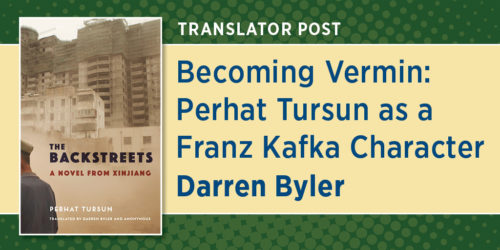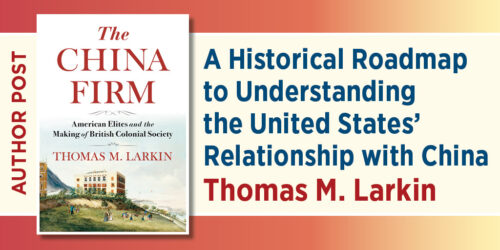Interview with Zheng Wang, author of Never Forget National Humiliation
The following is an interview with Zheng Wang, author of Never Forget National Humiliation: Historical Memory in Chinese Politics and Foreign Relations:
Question: What is historical memory? Why did you use “never forgot national humiliation” as the title of this book?
Zheng Wang: Let me give you an example, while only some Americans actually witnessed the fall of the World Trade Center towers on September 11th, future generations of Americans are undoubtedly becoming connected to this national trauma through its retelling in the news, family stories, and classroom lessons. Historical memory is recollections and representations of past historical events shared by a particular group. For a group of people, their collective historical memory can be linked to both a single event as well as their national experience. It is collective memory of the past that binds a group of people together. For example, the National Mall in Washington D.C. reminds Americans of the glories and traumas of the United States. Each year millions of students visit their nation’s capitol to see these grand symbols and hear the stories that define what it means to be an American.
For the Chinese, their historical consciousness has been powerfully influenced by the so-called “century of humiliation” from the First Opium War (1839–1842) through the end of the Sino-Japanese War in 1945. Chinese remember this period as a time when their nation was attacked, bullied, and torn asunder by imperialists. “Never forget national humiliation” is the English translation of a Chinese phrase Wuwang Guochi. In this book, I refer to it as the “national phrase” of China. The Chinese characters associated with this motto were engraved on monuments and painted on walls all over China. In general, this book examines how the discourse of national humiliation became an integral part of the construction of national identity and nation building in the different periods of China. It also explains how today’s Chinese youth engage with the phrase and how this informs their understanding of who they are and their perception of the rest of the world.
Q: So much time has passed since the “century of humiliation,” hasn’t time healed China? Also, China is now a rising power, shouldn’t their success provide healing?
ZW: In general, yes, time heals wounds everywhere. But in all societies, there are always people – educators, elites, and state leaders – who hope that the younger generation of society will not forget what happened to their people in the past. This book unveils how the rulers of the country have used many different means, from textbooks, popular culture, and public media to urge citizens, especially the younger generations, to never forget this part of their nation’s history. After all these efforts, the belief that China must “never forget national humiliation” has become ingrained in public rhetoric and bureaucratic procedures.
It is also true that China is no longer as weak and isolated as it once was. It is now a strong state that has the power to impact global affairs. However, the Chinese people have not really moved forward from their past humiliation. In fact, China’s new accomplishments and growing confidence often serve to strengthen this historical consciousness by activating, not assuaging, people’s memory of the past humiliation. For example, while globally people talk about China’s rise, the Chinese use another word: rejuvenation which has a different meaning. By choosing the word “rejuvenation,” the Chinese emphasize their current status as a return to a state of greatness rather than a rise from nothing.
Q: What drew you to this research? And how could a study about a group of people’s collective memory and history education answer questions about this country’s political transition and foreign relations?
ZW: I believe that the central question regarding China is not really about how to measure China’s strength, but how to understand its intentions. What this book attempts to do is to help people to better understand the Chinese people, their motivations, intentions, and thought processes. The research in this book identifies historical memory as the most important component for China’s construction of national identity. Since national interests are largely determined by national identity, and in turn national interests drive foreign policy and state action, a thorough understanding of Chinese historical consciousness is essential to understanding Chinese political interaction both domestic and abroad. It is my hope that this book’s portrayal of historical memory can be useful in decoding China’s political transition, popular sentiment, and international behavior in the Post-Tiananmen and Post-Cold War era.
Q: How does this mentality influence China’s foreign policy decision-making and its international behavior?
ZW: Findings indicate that historical memory very often serves as a major motivating factor in Chinese international conflict, especially when the confrontation is perceived by the Chinese as an assault on the nation’s fundamental identity, stature, or authority. Through the lens of historical memory, an isolated and/or accidental event (as viewed by the outsiders) might be perceived by Chinese leaders as a new humiliation. Thus accidental behavior or missteps by other nations could quickly touch on sensitive Chinese feelings about the 19th and 20th century legacy of Western imperialism that weakened China. In cases such as the NATO bombing of the Chinese Embassy in Belgrade in 1999 the beliefs of history and memory justified the escalation of the conflict and the course of its development. Thus China’s tough and aggressive stance had an ethical and moral correctness grounded in events of the past. The current Chinese government’s overreliance on history to provide legitimization could constrain this government’s capability to satisfy its own people and to easily engage internationally.
1 Response
Leave a Reply
You must be logged in to post a comment.







Congs on your book publication. Important and timely topic; well positioned. Enjoyed reading your interview discussion. Looking forward to read your book.